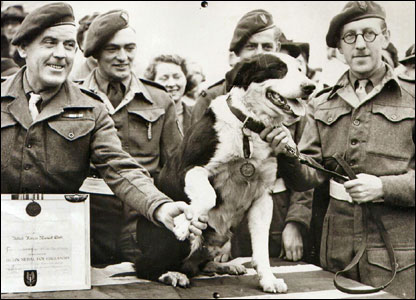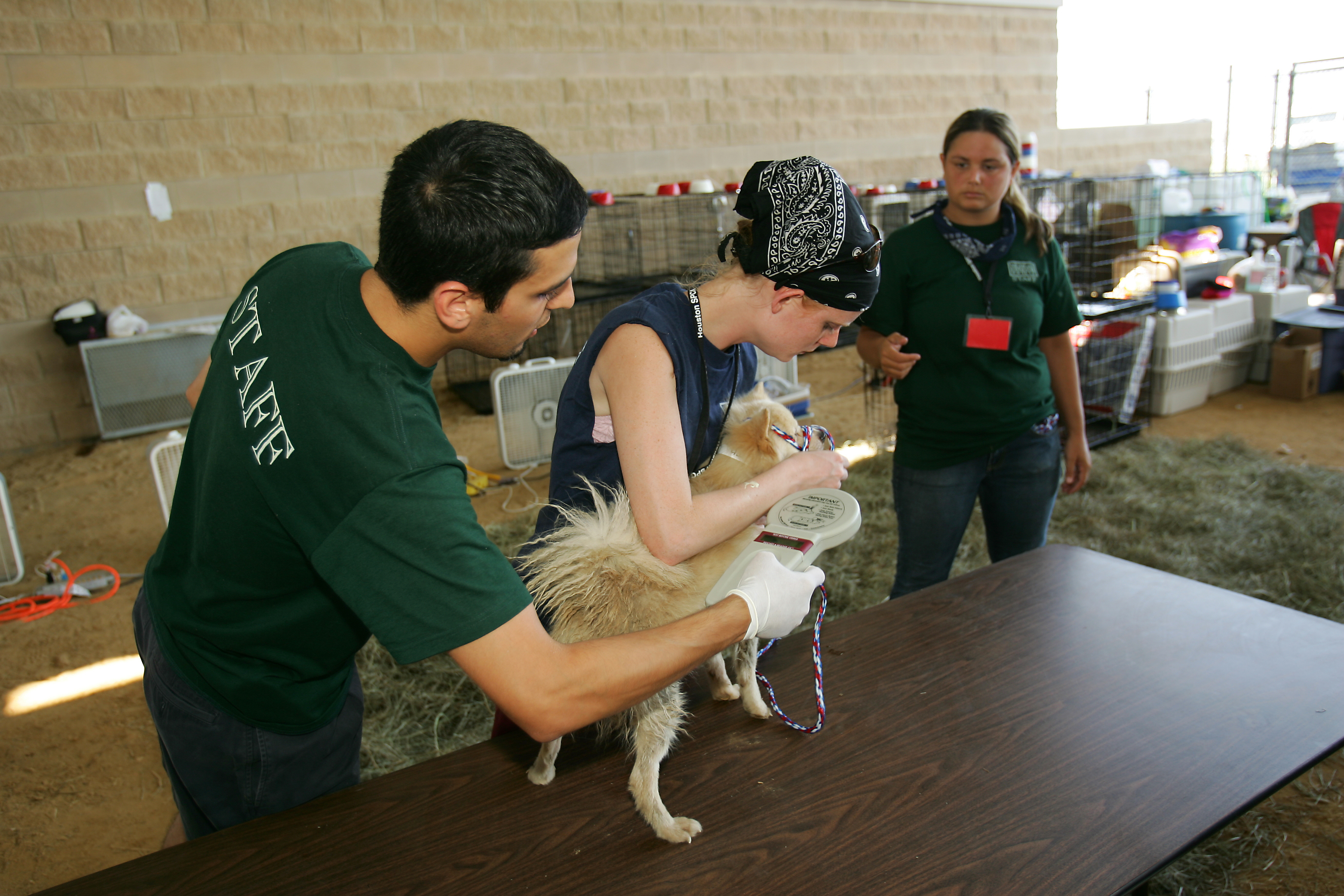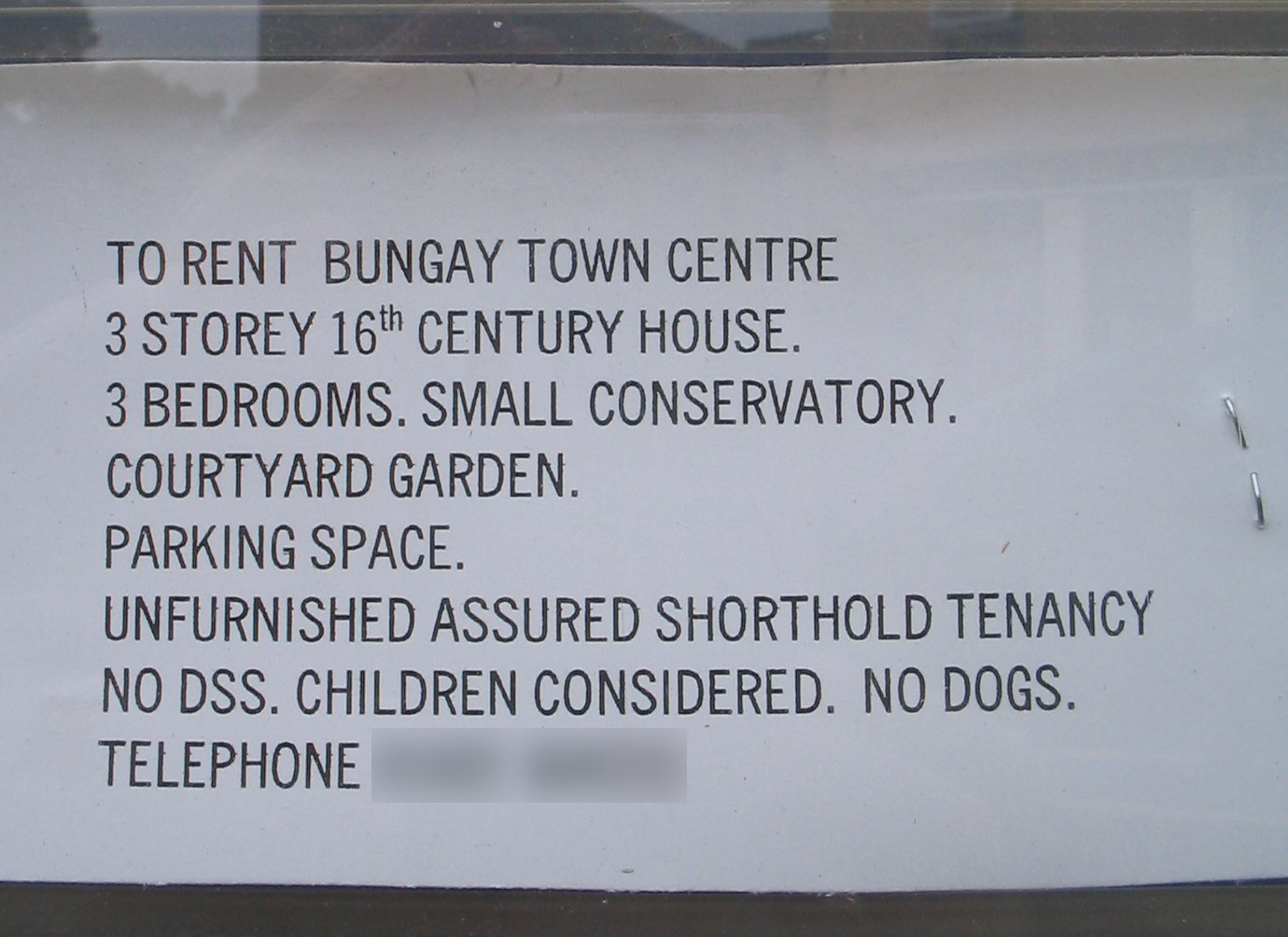|
People's Dispensary For Sick Animals
The People's Dispensary for Sick Animals (PDSA) is a veterinary charity in the United Kingdom. It was founded in 1917 by Maria Dickin to provide care for sick and injured animals of the poor. It is the UK's leading veterinary charity, carrying out more than one million free veterinary consultations a year, and was until 2009 the largest private employer of fully qualified veterinary surgeons and veterinary nurses in the UK; only those living within the PDSA's catchment areas can use their services. Foundation and development During World War I, animal-welfare pioneer Maria Dickin worked to improve the dreadful state of animal health in the Whitechapel area of London. She wanted to open a clinic where East Enders living in poverty could receive free treatment for their sick and injured animals. Despite widespread scepticism, she opened her free "dispensary" in a Whitechapel basement on 17 November 1917. She put out a sign that read: ‘Bring your sick animals! Do not let the ... [...More Info...] [...Related Items...] OR: [Wikipedia] [Google] [Baidu] |
Maria Dickin
Maria Elisabeth Dickin CBE (nickname, Mia; 22 September 1870 – 1 March 1951) was a social reformer and an animal welfare pioneer who founded the People's Dispensary for Sick Animals (PDSA) in 1917. The Dickin Medal is named for her. Early life Maria Dickin was born in 1870 in South Hackney, Middlesex, the oldest of eight children born to William George Dickin, a Wesleyan minister, and Ellen Maria Exell Dickin.Brian Harrison, ‘Dickin, Maria Elisabeth (1870–1951)’, Oxford Dictionary of National Biography, Oxford University Press, 2004; online edn, May 201accessed 2 Aug 2011/ref> Career Dickin taught singing as a young woman, and in 1905 compiled and published ''Suggestive Thoughts from the Temple'' (1905), a collection of sayings by London minister Reginald John Campbell. She founded the People's Dispensary for Sick Animals (PDSA) in 1917, in a cellar in Whitechapel. The sign on the door reflected Dickin's intent, to provide humane veterinary care to pets whose own ... [...More Info...] [...Related Items...] OR: [Wikipedia] [Google] [Baidu] |
Dickin Medal
The PDSA Dickin Medal was instituted in 1943 in the United Kingdom by Maria Dickin to honour the work of animals in World War II. It is a bronze medallion, bearing the words "For Gallantry" and "We Also Serve" within a laurel wreath, carried on a ribbon of striped green, dark brown, and pale blue. It is awarded to animals that have displayed "conspicuous gallantry or devotion to duty while serving or associated with any branch of the Armed Forces or Civil Defence Units". The award is commonly referred to as "the animals' Victoria Cross". Maria Dickin was the founder of the People's Dispensary for Sick Animals (PDSA), a British veterinary charity. She established the award for any animal displaying conspicuous gallantry and devotion to duty whilst serving with British Empire armed forces or civil emergency services. The medal was awarded 54 times between 1943 and 1949 – to 32 pigeons, 18 dogs, 3 horses, and a ship's cat – to acknowledge actions of gallantry or devotion ... [...More Info...] [...Related Items...] OR: [Wikipedia] [Google] [Baidu] |
Microchip Implant (animal)
A microchip implant is an identifying integrated circuit placed under the skin of an animal. The chip, about the size of a large grain of rice, uses passive radio-frequency identification (RFID) technology, and is also known as a PIT (passive integrated transponder) tag. Standard pet microchips are typically 11–13 mm long (approximately inch) and 2 mm in diameter. Externally attached microchips such as RFID ear tags are commonly used to identify farm and ranch animals, with the exception of horses. Some external microchips can be read with the same scanner used with implanted chips. Animal shelters, animal control officers and veterinarians routinely look for microchips to return lost pets quickly to their owners, avoiding expenses for housing, food, medical care, outplacing and euthanasia. Many shelters place chips in all outplaced animals. Microchips are also used by kennels, breeders, brokers, trainers, registries, rescue groups, humane societies, clinics, far ... [...More Info...] [...Related Items...] OR: [Wikipedia] [Google] [Baidu] |
Vaccinations
Vaccination is the administration of a vaccine to help the immune system develop immunity from a disease. Vaccines contain a microorganism or virus in a weakened, live or killed state, or proteins or toxins from the organism. In stimulating the body's adaptive immunity, they help prevent sickness from an infectious disease. When a sufficiently large percentage of a population has been vaccinated, herd immunity results. Herd immunity protects those who may be immunocompromised and cannot get a vaccine because even a weakened version would harm them. The effectiveness of vaccination has been widely studied and verified. Vaccination is the most effective method of preventing infectious diseases; widespread immunity due to vaccination is largely responsible for the worldwide eradication of smallpox and the elimination of diseases such as polio and tetanus from much of the world. However, some diseases, such as measles outbreaks in America, have seen rising cases due to relative ... [...More Info...] [...Related Items...] OR: [Wikipedia] [Google] [Baidu] |
Neutering
Neutering, from the Latin ''neuter'' ('of neither sex'), is the removal of an animal's reproductive organ, either all of it or a considerably large part. The male-specific term is castration, while spaying is usually reserved for female animals. Colloquially, both terms are often referred to as fixing. In male horses, castrating is referred to as ''gelding''. An animal that has not been neutered is sometimes referred to as ''entire'' or ''intact''. Neutering is the most common method for animal sterilization. Humane societies, animal shelters, and rescue groups urge pet owners to have their pets neutered to prevent the births of unwanted litters, which contribute to the overpopulation of unwanted animals in the rescue system. Many countries require that all adopted cats and dogs be sterilized before going to their new homes. Methods of sterilization Females (spaying) Spaying is the surgical removal of the ovaries and uterus in female animals. It is commonly performed as a ... [...More Info...] [...Related Items...] OR: [Wikipedia] [Google] [Baidu] |
Council Tax
Council Tax is a local taxation system used in England, Scotland and Wales. It is a tax on domestic property, which was introduced in 1993 by the Local Government Finance Act 1992, replacing the short-lived Community Charge The Community Charge, commonly known as the poll tax, was a system of taxation introduced by Margaret Thatcher's government in replacement of domestic rates in Scotland from 1989, prior to its introduction in England and Wales from 1990. It pr ..., which in turn replaced the domestic rates. Each property is assigned one of eight bands in England and Scotland (A to H), or nine bands in Wales (A to I), based on property value, and the tax is set as a fixed amount for each band. The more valuable the property, the higher the tax, except for properties valued above £320,000 (in 1991 prices). Some property is exempt from the tax, and some people are exempt from the tax, while some get a discount. In 2011, the average annual levy on a property in England was ... [...More Info...] [...Related Items...] OR: [Wikipedia] [Google] [Baidu] |
Housing Benefit
Housing Benefit is a means-tested social security benefit in the United Kingdom that is intended to help meet housing costs for rented accommodation. It is the second biggest item in the Department for Work and Pensions' budget after the state pension, totalling £23.8 billion in 2013–14. The primary legislation governing Housing Benefit is the Social Security Contributions and Benefits Act 1992. Operationally, the governing regulations are statutory instruments arising from that Act. It is governed by one of two sets of regulations. For working age claimants it is governed by the "Housing Benefit Regulations 2006", but for those who have reached the qualifying age for Pension Credit (regardless of whether it has been claimed) it is governed by the "Housing Benefit (Persons who have attained the qualifying age for state pension credit) Regulations 2006". It is normally administered by the local authority in whose area the property being rented lies. In some circumstances, ... [...More Info...] [...Related Items...] OR: [Wikipedia] [Google] [Baidu] |
Max (English Springer Spaniel)
Max (12 August 2007 – 6 April 2022) was an English Springer Spaniel pet dog who in February 2021 became the first ever pet to receive the PDSA Order of Merit, an award which is considered the animal equivalent on the OBE and is normally reserved for dogs such as Police dogs or Service dogs. He died on 6 April 2022. Background Kerry Irving of Cumbria in the United Kingdom was seriously injured in a road traffic accident and while recuperating and suffering from depression, he adopted Max to bring for walks to assist him in his wellbeing. Kerry credits Max as giving him the will to live again. Social media Max became a social media celebrity when his owner created the page ''Max Out in the Lake District'', which attracted a large following and was said to have helped "thousands across the globe" during the COVID-19 pandemic The COVID-19 pandemic, also known as the coronavirus pandemic, is an ongoing global pandemic of coronavirus disease 2019 (COVID-19) caused ... [...More Info...] [...Related Items...] OR: [Wikipedia] [Google] [Baidu] |
English Springer Spaniel
The English Springer is a dog breed, breed of gun dog in the Spaniel group traditionally used for flushing and retrieving game. It is an affectionate, excitable breed with a typical lifespan of twelve to fourteen years. They are very similar to the Welsh Springer Spaniel and are descended from the Norfolk Spaniel, Norfolk or Shropshire Spaniels of the mid-19th century; the breed has diverged into separate show and working lines. The breed suffers from average health complaints. The show-bred version of the breed has been linked to "rage syndrome", although the disorder is very rare. It is closely related to the Welsh Springer Spaniel and very closely to the English Cocker Spaniel; less than a century ago, springers and cockers would come from the same litter. The smaller "cockers" hunted woodcock while the larger littermates were used to flush, or "spring", game. In 1902, The Kennel Club recognized the English Springer Spaniel as a distinct breed. They are used as sniffer dogs ... [...More Info...] [...Related Items...] OR: [Wikipedia] [Google] [Baidu] |
Police Horse
Mounted police are police who patrol on horseback or camelback. Their day-to-day function is typically picturesque or ceremonial, but they are also employed in crowd control because of their mobile mass and height advantage and increasingly in the UK for crime prevention and high visibility policing roles. The added height and visibility that the horses give their riders allows officers to observe a wider area, and it also allows people in the wider area to see the officers, which helps deter crime and helps people find officers when they need them. When employed for crowd control, there is a risk that some people may be trampled (resulting in injuries or death). Due to this, authoritarian regimes often use mounted police to supress protests, as the public generally does not view these "accidental" deaths as resulting from a deliberate use of deadly force. In at least one case this has resulted in the police officer riding the horse (that caused the injury) to be sued. Mounted po ... [...More Info...] [...Related Items...] OR: [Wikipedia] [Google] [Baidu] |
Order Of The British Empire
The Most Excellent Order of the British Empire is a British order of chivalry, rewarding contributions to the arts and sciences, work with charitable and welfare organisations, and public service outside the civil service. It was established on 4 June 1917 by King George V and comprises five classes across both civil and military divisions, the most senior two of which make the recipient either a knight if male or dame if female. There is also the related British Empire Medal, whose recipients are affiliated with, but not members of, the order. Recommendations for appointments to the Order of the British Empire were originally made on the nomination of the United Kingdom, the self-governing Dominions of the Empire (later Commonwealth) and the Viceroy of India. Nominations continue today from Commonwealth countries that participate in recommending British honours. Most Commonwealth countries ceased recommendations for appointments to the Order of the British Empire when they ... [...More Info...] [...Related Items...] OR: [Wikipedia] [Google] [Baidu] |




.jpg)